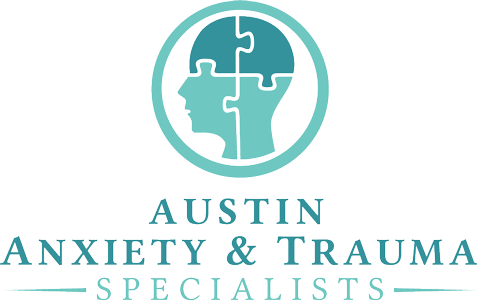Nobody wants to be rejected—whether it’s your job application, friendship, or your heart. Rejection is a hurtful experience that everyone must face at some point, and many are forced to grow a thick skin to it, or learn healthy ways to cope. But for some, the fear and pain associated with perceived or anticipated rejection are intensely magnified. This heightened emotional response is known as rejection sensitivity, an unofficial condition commonly associated with low self-esteem, anxiety, depression, and Attention-Deficit Hyperactivity Disorder (ADHD).
What rejection sensitivity looks like
Do you anxiously expect, readily perceive, and intensely react to rejection? Unlike Rejection Sensitive Dysphoria (RSD), which involves extremely severe emotional pain and dysphoria, rejection sensitivity primarily revolves around the anticipation and fear of rejection. This fear can greatly harm your self-esteem and often leads to patterns of behavior that adversely affect interactions and relationships. For example, some turn to people-pleasing tendencies to avoid anticipated rejection, which could harm themselves and relationships in the long run.
Individuals with high rejection sensitivity often read too much into everyday interactions, perceiving rejection in even benign or neutral behaviors of others. This can lead to significant emotional distress, social withdrawal, or even aggressive behavior in response to the perceived rejection.
Read: A Love Letter To People-Pleasers
The link between rejection sensitivity and cognitive disorders
More often than not, rejection sensitivity coexists with other mental health disorders like ADHD, depression, and anxiety. The connection to ADHD is particularly noteworthy. Individuals with ADHD may struggle with emotional dysregulation, making them feel emotions more strongly and more susceptible to feelings of rejection and the intense emotional turmoil that follows. The impulsivity characteristic of ADHD can also exacerbate situations, potentially leading to more frequent experiences of rejection or perceived rejection and creating a cyclical pattern that can be difficult to break.
Similarly, rejection sensitivity can deepen the impact of anxiety and depression. For those with anxiety, the anticipation of rejection can heighten stress and fear responses, leading to avoidance behaviors and social withdrawal, which are common in anxiety disorders. Depression can be both a cause and a consequence of rejection sensitivity. The persistent sense of sadness and low self-esteem associated with depression can make individuals more vulnerable to feeling rejected, while repeated experiences of intense rejection sensitivity can contribute to depressive states.
Read: Sorry, Not Sorry: Why You’re Over-Apologizing & 6 Tips To Quit
The difference between rejection sensitivity and RSD
While both rejection sensitivity and Rejection Sensitivity Dysphoria (RSD) involve heightened responses to rejection and are both often tied to ADHD, they differ in intensity.
Rejection sensitivity is more about the anxiety and fear of being rejected, leading to overanalyzing social cues and avoiding situations where rejection is possible.
On the other hand, RSD can be more severe, involving an intense emotional reaction to real or perceived rejection.
Read: Beyond The Blush: Your Toolkit For Coping With Social Anxiety
Strategies to manage rejection sensitivity
The journey to overcome the challenges of rejection sensitivity involves both understanding its roots and actively developing strategies to cope with its effects. Here are some approaches that can help:
Emotional regulation exercises: Grounding exercises are essential for managing emotional responses to perceived rejection. Techniques such as deep breathing, focusing on sensory experiences, or engaging in brief mindfulness meditation can stabilize the nervous system and keep an individual present. Regular practice of these techniques helps develop the ability to remain calm and centered during stressful interactions.
Social Skills Training: Sometimes, the fear of rejection is compounded by not knowing how to interact effectively. Social skills training can help individuals learn how to communicate more clearly and confidently, reducing misunderstandings and perceived rejections. These skills can also empower young adults to engage more openly in social situations, gradually decreasing the anxiety associated with social interactions.
Practicing Self-Compassion: Often, folks with high rejection sensitivity are incredibly hard on themselves. Cultivating self-compassion involves treating yourself with the same kindness and understanding you would offer a good friend. This practice can mitigate the harsh internal critic that exacerbates feelings of rejection. Self-compassion exercises and guided meditations can be practical tools in building this crucial skill.
Cognitive-Behavioral Techniques: Learning to identify and challenge the automatic thoughts that arise when one fears rejection is a crucial step. Cognitive Behavioral Therapy (CBT) can help individuals reframe their thoughts about rejection from catastrophic to more realistic assessments. We dive more into this technique below.
Read: Stop The Spiral: How To Focus On What You Can Control
Challenge perceived rejection by identifying cognitive distortions
Through techniques like cognitive restructuring, which is a component of Cognitive Behavioral Therapy, individuals can question and modify these distorted thoughts, helping them to see and interact with the world more clearly and realistically. Cognitive distortions are inaccurate thought patterns that can exacerbate feelings of rejection. The key to disillusioning perceived rejection is to recognize and challenge these distortions and respond more healthily to social interactions. Some common cognitive distortions include:
- Mind reading: Assuming that others are thinking negatively about you without sufficient evidence.
- Catastrophizing: Expecting the worst possible outcome in a situation, often thinking that a small rejection will lead to more significant, more disastrous consequences.
- Overgeneralization: Viewing a single negative event as a never-ending pattern of defeat and failure.
- Personalization: Believing that negative events are your fault, even when you are not primarily responsible.
- All-or-nothing thinking: Seeing situations in black and white categories. If a situation is not perfect, it’s a total failure.
To learn more about how to identify cognitive distortions in your belief system, challenge them, and overcome negative beliefs, read the blog: 7 Cognitive Distortions To Uproot From Your Belief System.
Seek professional help
While the above strategies can help you manage rejection sensitivity, self help can only get you so far without the guidance of a trained therapist. If you’re a Texas resident, we’d be happy to match you to one of our therapists who can work with you to develop customized coping mechanisms alongside a proven treatment that addresses your specific challenges. Request a free consultation today and we’ll get you started on your healing journey. You’re not alone. We’re in your corner.






